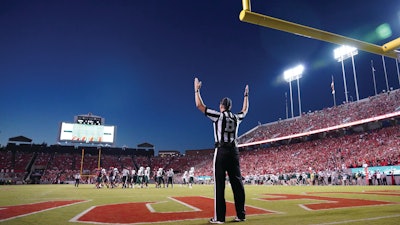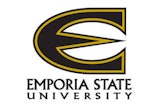
Over the past 10 years, a series of legal cases have chipped away at the foundation of the National Collegiate Athletic Association’s amateur athletics model.
The first case was in 2015, when the Ninth Circuit upheld the District Court’s decision in O’Bannon v. NCAA, 802 F.3d 1049 (2015) that the NCAA’s restrictions on college athletes violated federal antitrust law. While it agreed that the athletes were “amateurs” and that the NCAA could restrict schools from paying athletes, the Ninth Circuit concluded that any restraints below the full cost of attendance were illegal.
The next case to challenge the NCAA’s amateur sports model was Alston v. NCAA, 141 S. Ct. 2141 (2021). In Alston, the United States Supreme Court reaffirmed the Ninth Circuit’s ruling that the NCAA was subject to antitrust laws and that any restraints that limited educational benefits to athletes violated such laws. In his concurring decision, Justice Brett Kavanaugh wrote that the NCAA and its member colleges have built and maintained a massive money-raising enterprise on the backs of college athletes who were not being fairly compensated. The NCAA, Kavanaugh noted, is not above the law and should therefore pay its workers (college athletes) a fair-market rate. However, while Kavanaugh’s concurring opinion has received a lot of attention, it should be noted that no other justices attached their names to his decision.
Having lost two high-profile antitrust cases in federal court and fearing another antitrust defeat, the NCAA decided against challenging those states that had enacted name, image and likeness laws in violation of NCAA rules. Instead, the NCAA left it to the individual schools to establish their own NIL policies. As a result, starting in July 2021, college athletes for the first time have been able to profit off their NIL rights while still retaining their college eligibility.
This free-for-all system has allowed some donors and donor collectives to pay college athletes for services. For example, in April 2022, a collective associated with the University of Oklahoma announced that it will pay OU football, basketball and softball players $40,000 to $50,000 a year for community service.
With the NCAA seemingly unwilling or unable to adapt to the changing landscape, college athletics administrators have been anxiously awaiting the next legal challenge. With Ralph “Trey” Johnson, et al., v. NCAA, 556 F. Supp. 3d 491 (2021) currently working its way through the federal courts, the wait appears to be over.
Are athletes employees?
Trey Johnson, a former Villanova University football player, and other Division I college athletes filed a claim under the Fair Labor Standards Act (FLSA) against a group of colleges and universities, as well as the NCAA, claiming that the athletes are school employees who should be paid for the time they spend related to their athletic activities, and that the NCAA is a joint employer.
In support of this position, Johnson and the other athletes noted that NCAA D-I member schools require athletes to participate in “countable athletically related activities,” which are recorded on timesheets under an NCAA D-I bylaw. A student-athlete who fails to attend meetings or participate in practices or scheduled competitions can be disciplined, including suspension or dismissal from the team. NCAA bylaws also require student-athletes to participate in other activities such as fundraising and community service.
At the same time, Johnson noted, the NCAA procures substantial revenues from sports. In the 2018 fiscal year, the NCAA reported total revenues of more than $1 billion. These revenues came from fees collected for television and marketing rights, championships, tournaments and merchandise sales. In their 2016 fiscal year, NCAA D-I schools in the Power Five conferences had median total revenues related to NCAA sports of more than $97 million; other schools in the Football Bowl Subdivision reported median total revenues related to NCAA sports of nearly $33.5 million; schools in the Football Championship Subdivision had median total revenues related to NCAA sports of nearly $17.5 million; and schools that did not have NCAA football teams reported median total revenues from NCAA sports of more than $16 million.
Because of the control member schools exercise over their athletes and the revenue the athletes generate for their schools, Johnson and the other plaintiffs claimed that they are employees who should be paid for the time they spend engaged in activities connected to NCAA sports. Since the athletes did not get paid, Johnson asserted that the NCAA and the member schools have violated the FLSA.
The NCAA and schools sought to dismiss the lawsuit on the grounds that the athletes are not employees. In particular, the NCAA and schools argued that the athletes cannot be their employees because: 1) college athletes are amateurs, 2) the Department of Labor has determined that interscholastic athletes are not employees for purposes of the FLSA, and 3) the athletes fail to qualify as employees based on the economic realities of the relationship.
In rejecting the motion to dismiss by the NCAA and schools, the United States Court of Appeals for the Third Circuit examined each of the three arguments. First, in considering the amateur status of the athletes, the court rejected the NCAA’s long-standing policy of not paying athletes because they were amateurs. Citing Kavanaugh’s concurring opinion in Alston, the court found that the argument “that colleges may decline to pay student-athletes because the defining feature of college sports … is that the student-athletes are not paid … is circular and unpersuasive.”
The second argument — that the Department of Labor has already determined that student participation in extracurricular activities, including that of interscholastic athletes, does not result in an employer-employee relationship — was likewise rejected by the court. The Department of Labor guidelines, the court ruled, do not apply to the athletes’ relationship with the NCAA and school because they participate in NCAA-sanctioned college sports, not student-run groups. In support of this conclusion, the court found that NCAA D-I intercollegiate athletics are not conducted primarily for the benefit of the athletes who participate in them, but for the monetary benefit of the NCAA and the colleges and universities. Additionally, the court found that NCAA D-I athletics are not part of the educational opportunities provided to the student-athletes by the colleges and universities that they attend, but rather conversely interfere with the student-athletes’ abilities to participate in and get the maximum benefit from the academic opportunities offered by their colleges and universities.
As for the final argument, that college athletes are not employees based on the economic realities of the relationship between the athletes and the schools, the court concluded that after balancing all of the factors involved in college sports — both educational and economic — the weight falls in favor of finding that college athletes are employees.
While the court agreed with the NCAA and schools that the athletes clearly understand that there is no expectation of compensation for their services, the court also found that NCAA sports are not tied to the student’s formal education program by integrated coursework. Moreover, the amount of time that athletes spend in connection with their participation in NCAA D-I athletics actually interferes with their ability to take the classes they might want or major in academic fields they might prefer, as well as inhibits athletes’ ability to keep up with the classes they do take.
Based on the economic benefits that the NCAA and schools receive, compared to the economic benefits athletes supposedly received from participation in interscholastic athletics, the court concluded that when all the factors are balanced, it would be reasonable to find that college athletes are employees of the NCAA and their schools.
Business decision
It is important to emphasize that — unlike most case studies examined in the Legal Action space of AB — this month’s case is still in its early stages. In fact, so far, the only decisions are those of the district court and the Third Circuit rejecting the motions of the NCAA and its member schools to dismiss the case. The courts have yet to conclude that the athletes are employees of the NCAA or the schools. The case is still pending, but important for college athletic administrators nonetheless.
Historically, the courts have not considered college athletes employees of their schools. However, as the courts in Johnson and Alston both noted, the NCAA and its member institutions are collectively generating billions of dollars in revenues off the athletes’ efforts every year — money, the courts have noted, that flows to everyone except the student-athletes. College presidents, athletic directors, coaches, conference commissioners and NCAA executives all take in six- and seven-figure salaries from the production of these athletic events, but the athletes who compete in the events end up with little or nothing.
If Johnson and the other athletes eventually do win their case against the NCAA and the schools, resulting in their consideration as employees of college athletics, it will chip away at the few remaining pieces of the NCAA’s crumbling amateurism model. This in turn will lead to college athletes being paid directly by their schools and even the unionization of athletes.
While schools in the major football conferences likely could compensate athletes in this new business model, others won’t be able to afford it. As a result, schools such as Villanova with limited athletic budgets will have to decide whether to continue playing football at the expense of other, non-revenue sports.




































